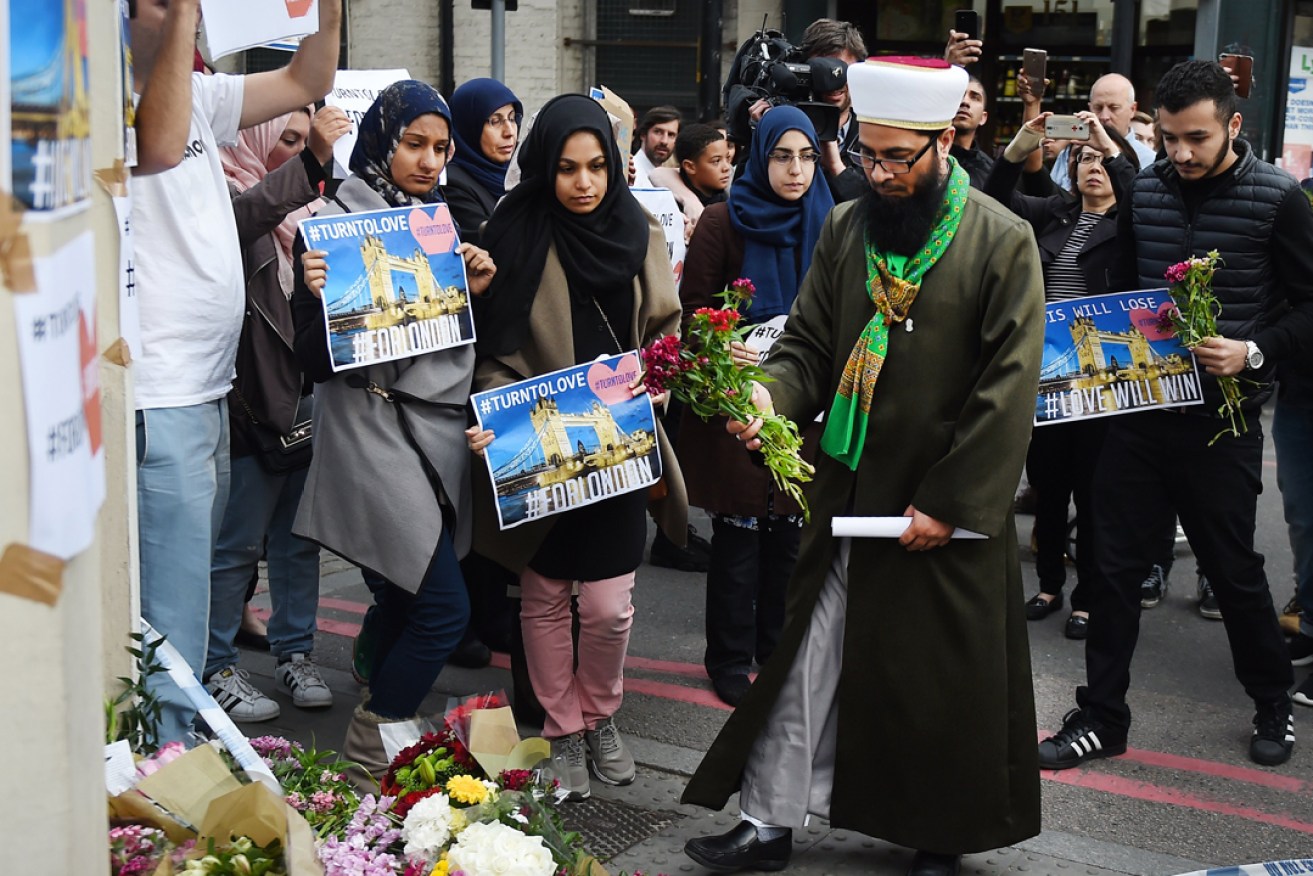The best defence against terrorism
Maintaining social cohesion is Australia’s best defence against terrorism, writes SA Islamic leader Mohamad Abdalla.

United we stand: members of London's Muslim community place flowers near the site of the attack at Borough Market. Photo: EPA
The recent attacks on civilians in Britain and Melbourne have been deeply upsetting and shocking to all of us. Condemnation of this violence has come quickly from both Muslims and non-Muslims.
Claims by the perpetrators themselves, some media and political pundits, that these acts of terror are “Islamic” are problematic on a number of fronts.
Firstly, terror groups such as ISIL advocate this position to create a rift between Muslims and non-Muslims. This tactic is designed to serve ISIL and its twisted ideology.
If we are to find real solutions to the problem of random attacks on civilians, division between Muslim and non-Muslim citizens is more than unhelpful.
Secondly, as believing Muslims well understand, claiming that acts of terror are “Islamic” is an oxymoron.
Islam categorically prohibits terrorism. Leading Muslim scholars and Imams have repeated this prohibition across the globe ad infinitum.
On May 24 this year, I issued a media release describing the scholarly consensus on the prohibition of killing innocent people (any non-combatant regardless of religion or ideology).
I said: “The nature of this prohibition is so specific and well-defined that there can be no legal justification, nor can there be any religious justification, for circumventing this principle by targeting innocent people.”
In 2015, more than 70,000 Muslim clerics issued a fatwa (legal opinion) against ISIS and other terror groups, saying they were “not Islamic organisations”.
The Australian National Imams’ Consultative Committee and the National Centre of Excellence for Islamic Studies (NCEIS) collated the fatwas of prominent scholars and authoritative organisations on the prohibition of terrorism and the killing of any innocent people.
In all the media coverage of the violence that has occurred and the commentary that follows, this message often fails to get through.
But it must be understood.
It should be repeated by all of us – Muslim leaders, the media and politicians alike – to reinforce the fact that Islam forbids terrorism.
This is a message not only for all of society but also for the vulnerable and misguided people in danger of becoming victims of the counter-narrative.
We must not fall victim to the extremists’ ideology of “us” and “them” or “Islam” and the “West.”
We must resist that temptation, dig deeper, understand more and rise above this if we are to find real solutions.
Irresponsible statements can further marginalise young people and make them susceptible to violent radicalisation
What is happening in this new wave of guerrilla terrorism is so random and violent that it is clear that the West is not the only target. Muslims die in these attacks, as seen in Afghanistan, Iraq, Indonesia – all under-reported here, but all evidence that terrorism does not target the West only.
Unfortunately, the reality that hundreds of thousands of Muslims also fall victim to acts of terror does not register in the public consciousness.
While ISIL and other terrorists have hijacked Islam for their own agendas, politicians such as Cory Bernardi and Pauline Hanson should not do the same.
The repetition of ISIL’s hate messages by anyone strengthens their resolve and undermines our initiatives in countering violent extremism.
Since the tragedy of September 11, 2001, I have worked closely with the Australian Muslim community, their Imams, men, women and young people.
I know that they have all worked tirelessly to condemn all acts of terrorism perpetrated in the name of their faith.
They have also been exceptionally busy reinforcing in their communities about the Islamic prohibition of terrorism and indiscriminate killings, and working closely with all government and non-government departments to stop the potential of terrorism.
That community cannot police all its members all the time, but it can continue to speak out and educate against violent extremism and terrorism because it is against the core of Islamic teachings.
Careless comments by some media and politicians undermine these initiatives. Irresponsible statements can further marginalise young people and make them susceptible to violent radicalisation.
Social cohesion, positive cooperation and genuine engagement are our best defence – if we are all hating on Muslims, why would vulnerable young people feel safe talking to us or to the authorities?
Professor Mohamad Abdalla is one of Australia’s most respected Islamic leaders and is the founding director of the Centre for Islamic Thought and Education at the University of South Australia.




